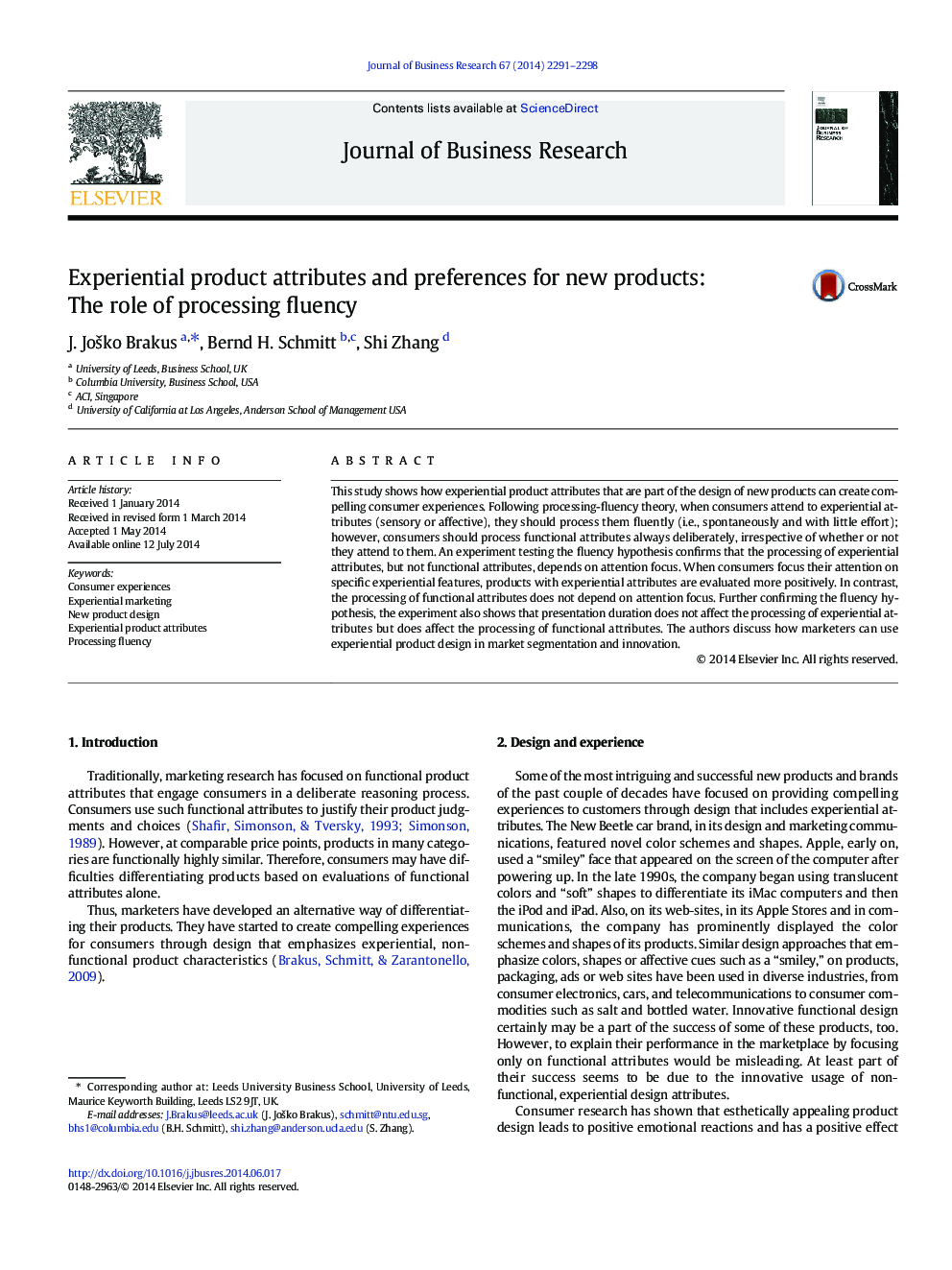| Article ID | Journal | Published Year | Pages | File Type |
|---|---|---|---|---|
| 1016980 | Journal of Business Research | 2014 | 8 Pages |
This study shows how experiential product attributes that are part of the design of new products can create compelling consumer experiences. Following processing-fluency theory, when consumers attend to experiential attributes (sensory or affective), they should process them fluently (i.e., spontaneously and with little effort); however, consumers should process functional attributes always deliberately, irrespective of whether or not they attend to them. An experiment testing the fluency hypothesis confirms that the processing of experiential attributes, but not functional attributes, depends on attention focus. When consumers focus their attention on specific experiential features, products with experiential attributes are evaluated more positively. In contrast, the processing of functional attributes does not depend on attention focus. Further confirming the fluency hypothesis, the experiment also shows that presentation duration does not affect the processing of experiential attributes but does affect the processing of functional attributes. The authors discuss how marketers can use experiential product design in market segmentation and innovation.
